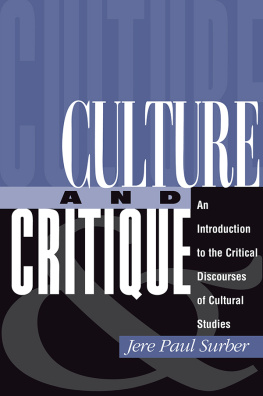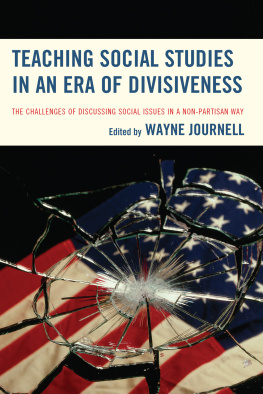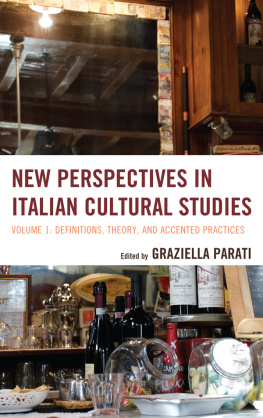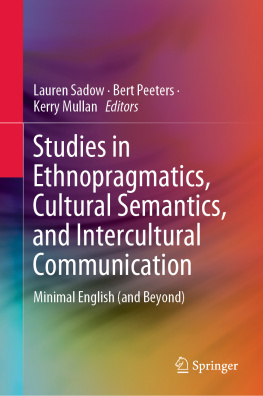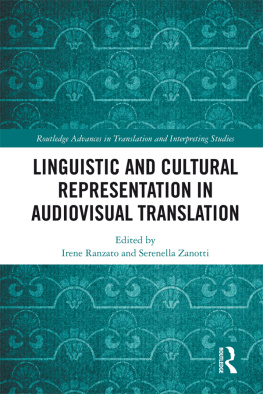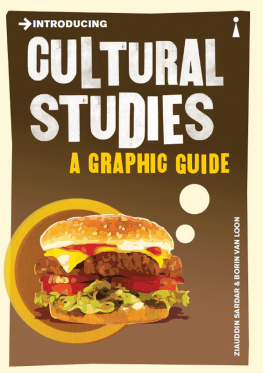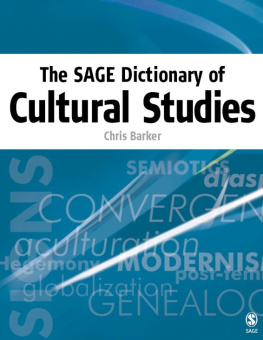First published 2003 by Northern Universities Press
Published 2017 by Routledge
2 Park Square, Milton Park, Abingdon, Oxon OX14 4RN
711 Third Avenue, New York, NY 10017, USA
Routledge is an imprint of the Taylor & Francis Group, an informa business
The Centre for Intercultural Germanistics, University of Glasgow, 2003
All rights reserved. No part of this book may be reprinted or reproduced or utilised in any form or by any electronic, mechanical, or other means, now known or hereafter invented, including photocopying and recording, or in any information storage or retrieval system, without permission in writing from the publishers.
Product or corporate names may be trademarks or registered trademarks, and are used only for identification and explanation without intent to infringe.
Front cover: Raphael, The Transfiguration (15181520)
ISBN 13: 978-1-904350-03-3 (pbk)
In 1936 Ernst Cassirer was awarded an honorary doctorate by the University of Glasgow, as 'one of the creative thinkers of his time'. The honour also reflected Cassirer's public (and private) connections with the University. More recently, the major revival in Germany of interest in his thought where both his published work (in Hamburg) and his unpublished work (in Berlin) are appearing in a prestigious Complete Edition, edited respectively by Professors Birgit Recki and John Michael Krois (together with Oswald Schwemmer) has coincided with the ongoing research programme of our Centre for Intercultural Studies. At the same time, it seems, there is growing disenchantment, on all sides, with the 'High Theory' of the 1970s and 1980s, and, in particular, with 'the gross simplication of Derridean deconstruction', and the 'levelling that reduces Foucault's work to the lowest common denominator [of] the notion of "disciplinary control"'. Moreover, it can help elucidate the filiation of German classicism down through the nineteenth century to the present, which has long been one of our intercultural research projects, and remains part of the Centre's mission.
In 1999, to mark the two-hundred-and-fiftieth anniversary of Goethe's birth, the University of Glasgow with strong support from its Principal, Professor Sir Graeme Davies instituted the 'Ernst Cassirer Lecture in Intercultural Relations', to be held annually to commemorate both Cassirer's association with the University, and his achievement in bringing out the implications of the cultural theory of Weimar Classicism, especially the possibilities it offers of developing a thoroughly intercultural model of scholarship. In 2002, the Centre's work in this area was recognized by the award (to Professors Stephenson and Bishop [University of Glasgow] and Professor John Michael Krois [Humboldt-Universitt, Berlin]) of a Large Research-Grant by the Arts and Humanities Research Board for a five-year investigative programme entitled 'Conceptions of Cultural Studies in Ernst Cassirer's Theory of Symbolic Forms'.
Following the Inaugural Ernst Cassirer Lecture, 'Ernst Cassirer and the Renaissance of Cultural Theory', held by Professor John Michael Krois on 25 April 2000 , two further Cassirer Lectures have been delivered, in October 2001 by Professor Birgit Recki and in March 2002 by Professor Cyrus Hamlin, both of which are published in this collection. Birgit Recki's lecture explores the problematic relationship in Cassirer's thought between language and all other such 'symbolic forms', in particular the relationship between metaphor as a figure of speech and thought, and Cassirer's conception of 'radical metaphor'. The latter is the fruit of Cassirer's career-long wrestling with the philosophical problems of semantics, which takes us to the heart of his theory of symbolism. From this vantage-point it is possible to see his theory of language as a point d'appui for profound reflection on the (methodologically) foundational act of meaning.
Cyrus Hamlin's lecture is a hermeneutic adaption or Cassirer s conception of Kulturwissenschaft to a spirited defence, and revitalization, of the discipline of the humanities in the context of the so-called 'culture wars' of the twenty-first century. It presents a fascinating historical exposition of some of the central aspects of the development of Cassirer's concept of 'symbolic form' into the full-blown theory of culture worked out, with constant reference to Goethe and nineteenth-century philosophy of history, in his later writings.
Paul Bishop relates Cassirer's fundamental discrimination between analysis and synthesis to the wrestling with this distinction of the 'founding fathers' of psychoanalysis and analytical psychology, Sigmund Freud and C. G. Jung (names strangely absent from Cassirer's works). It was around this distinction that their respective antithetical 'schools' eventually came to define themselves, and it was in terms of this distinction that each came to a different understanding of the Symbol (and sign, and allegory).
Rebecca Bamford's subtle and persuasive essay on the coherence linking Nietzsche's doctrine of the necessity of suffering with his commitment to an aesthetic attitude to existence (and to the ontology of the will to power) goes to the very heart of the current debate on the growing degradation of public and private culture. At the same time, it highlights the urgent pertinence of Cassirer's endeavour to set the characteristically human desire for (ever greater) significance his homo symbolicus at the centre of cultural study.
It is precisely in this sense that Roger Stephenson draws on Cassirer to throw light on the theoretical underpinnings of Goethe's and Schiller's joint Kulturkampf. Cassirer's sensitive reading of Weimar Classicism, and, above all, Goethe, informed his own theory of 'symbolic form'; and a reading of the Classical aesthetics of Goethe (and Schiller) through the lens of Cassirerian categories provides a sharpened appreciation of the peculiarly relevant sophistication of the cultural theory of German classicism in the context of so-called Postmodernism. For Goethe, as Cassirer appreciated, envisaged a double structure of the Symbol, one which accommodates both its otherwise inexpressible and its semiotic, 'allegorical', force (the latter of which has been the almost exclusive concern of theorists for the last thirty years or more).
In 2002 the Centre for Intercultural Studies (previously known as the Centre for Intercultural Germanistics) celebrated its tenth anniversary with an international conference on 'Nietzsche and the Classical Tradition'. the Centre should have concerned itself predominantly with the living, international relevance to the present of that great tradition of modern German and, more generally, European thought which, wittingly or unwittingly, draws its inspiration from the seminal thinkers of the eighteenth and nineteenth centuries. The future work of the Centre will continue this necessary task.


